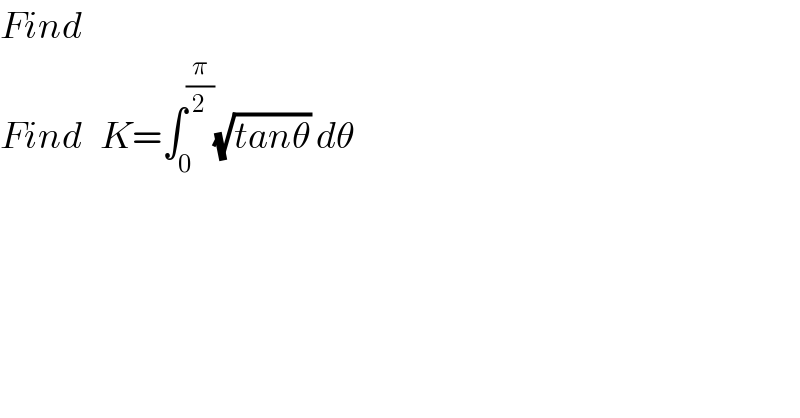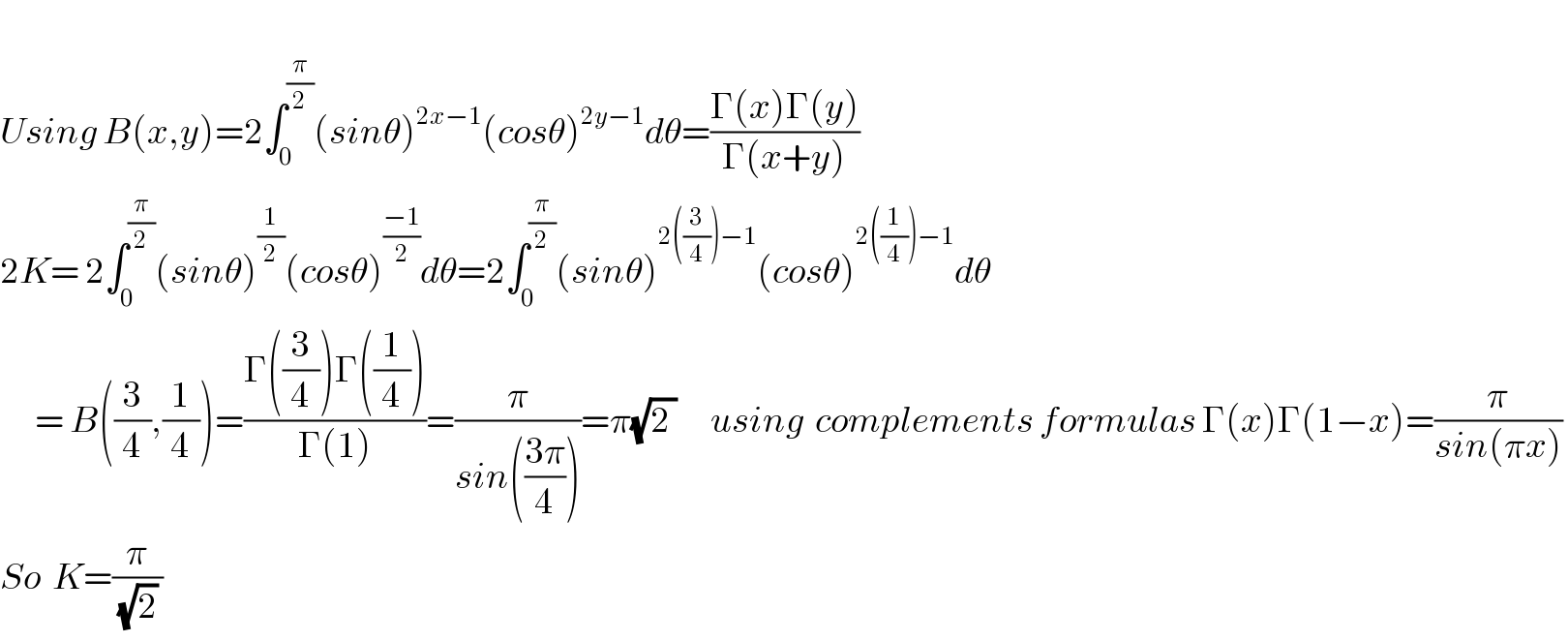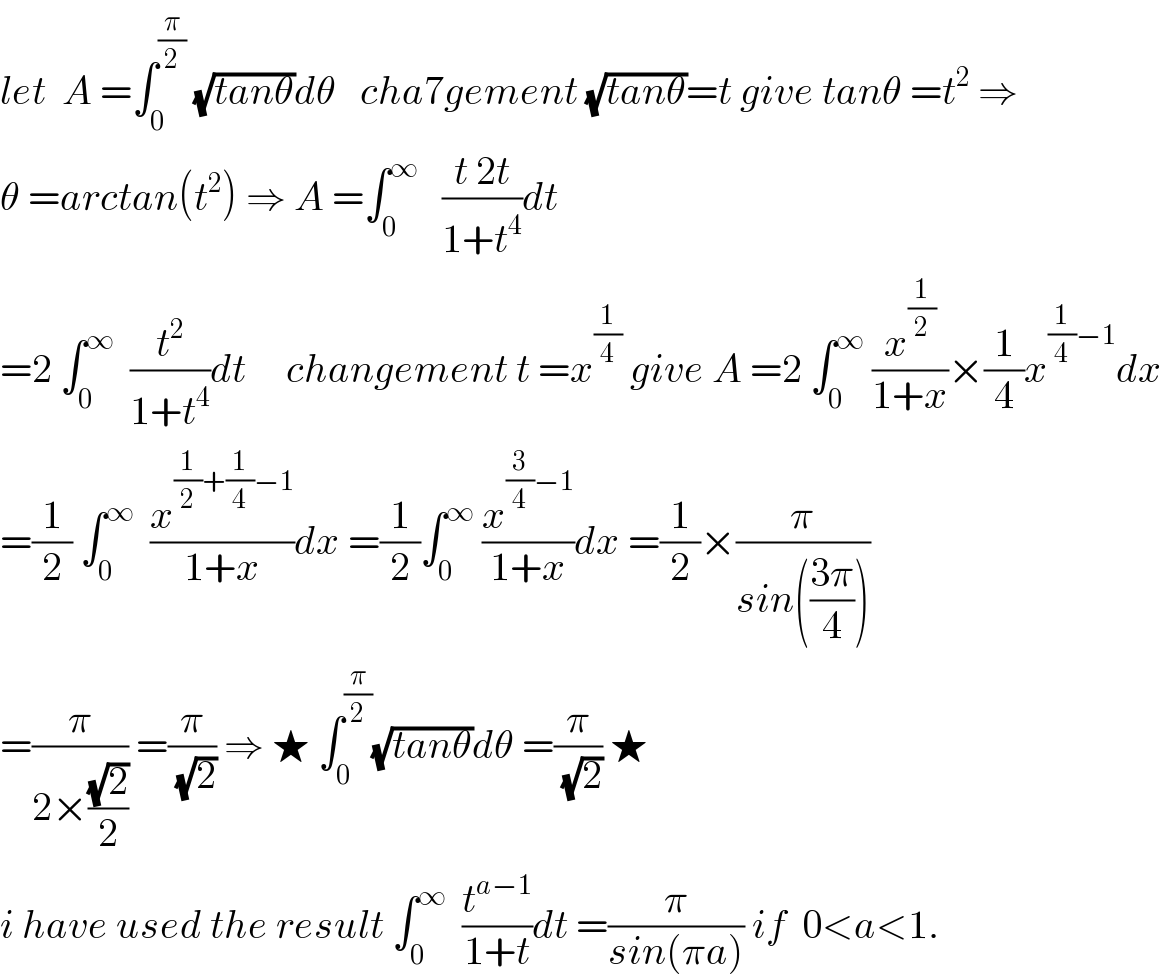Question Number 67463 by ~ À ® @ 237 ~ last updated on 27/Aug/19

Commented by ~ À ® @ 237 ~ last updated on 27/Aug/19

Commented by mathmax by abdo last updated on 27/Aug/19

Commented by ~ À ® @ 237 ~ last updated on 27/Aug/19

Answered by Kunal12588 last updated on 27/Aug/19
![I=∫(√(tan x)) dx let (√(tan x))=t ⇒[(1/(2(√(tan x))))×(1+tan^2 x)]dx=dt ⇒dx=((2t)/(1+t^4 ))dt I=∫((2t^2 )/(1+t^4 )) dt=∫ ((1+(1/t^2 ))/(t^2 +(1/t^2 )))dt + ∫ ((1−(1/t^2 ))/(t^2 +(1/t^2 )))dt =∫((d(t−(1/t)))/((t−(1/t))^2 +((√2))^2 ))+∫((d(t+(1/t)))/((t+(1/t))^2 −((√2))^2 )) =(1/( (√2)))tan^(−1) (((t^2 −1)/(t(√2))))+(1/(2(√2)))log∣((t^2 −(√2)t+1)/(t^2 +(√2)t+1))∣+C =(1/( (√2)))tan^(−1) (((tan x−1)/( (√(2tan x)))))+(1/(2(√2)))log∣((tan x−(√(2tan x))+1)/(tan x+(√(2tan x))+1))∣+C ∫_0 ^(π/2) (√(tan x))dx=∫_0 ^∞ ((2t^2 )/(1+t^4 ))dt lim_(t→∞) {(1/( (√2)))tan^(−1) ((t/( (√2)))−(1/(t(√2))))+(1/(2(√2)))log∣((1−((√2)/t)+(1/t^2 ))/(1+((√2)/t)+(1/t^2 )))∣+C} =(π/(2(√2))) lim_(t→0) {(1/( (√2)))tan^(−1) (((t^2 −1)/(t(√2))))+(1/(2(√2)))log∣((t^2 −(√2)t+1)/(t^2 +(√2)t+1))∣+C} =−(π/(2(√2))) ∫_0 ^(π/2) (√(tan x))dx=(π/(2(√2)))+(π/(2(√2)))=(π/( (√2)))=((π(√2))/2)](https://www.tinkutara.com/question/Q67472.png)
Commented by ~ À ® @ 237 ~ last updated on 27/Aug/19

